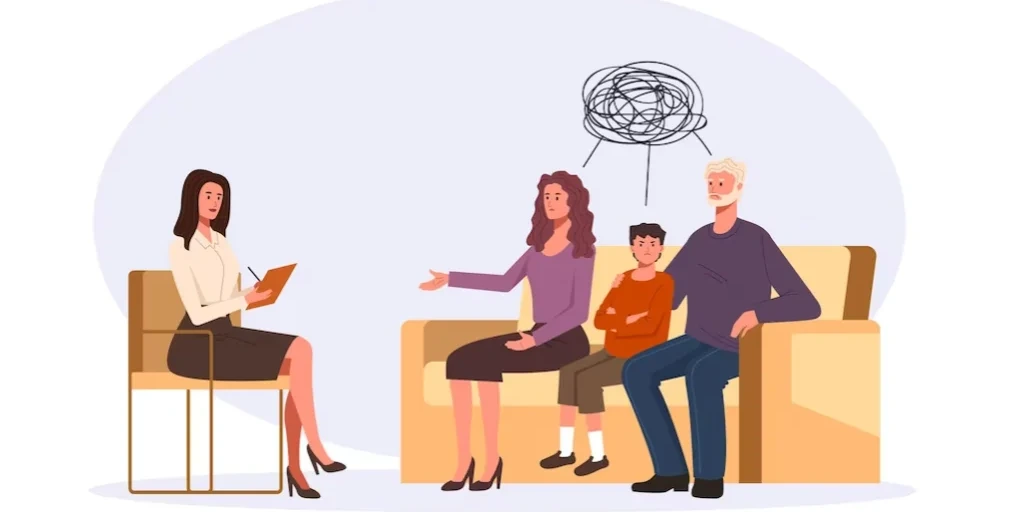24/7 Helpline:
(866) 899-111424/7 Helpline:
(866) 899-1114
Learn more about Intervention Services centers in Bay County
Intervention Services in Other Counties

Other Insurance Options
Beacon

Cigna

Group Health Incorporated

United Health Care

Health Choice

CareFirst

ComPsych

Access to Recovery (ATR) Voucher

Self-pay options

Meritain

Kaiser Permanente

Optum

Ceridian

Multiplan

Medical Mutual of Ohio

WellPoint

Aetna

Optima

Private insurance

Magellan Health

JourneyPure Emerald Coast – Outpatient
If you’re looking for help that actually helps you, you’re in the right place. JourneyPure is the be...

Life Management Center
Life Management Center is a private rehab located in Panama City, Florida. Life Management Center sp...

JourneyPure – Florida Alcohol & Drug Rehab
Living with addiction can feel like there’s no way out, yet our 6K+ success stories prove you can do...

Emerald Coast Behavioral Hospital
Emerald Coast Behavioral Hospital is a Joint Commission accredited psychiatric hospital. Located in ...

Florida Therapy Services
Florida Therapy Services is a private rehab located in Panama City, Florida. Florida Therapy Service...

Recovery Bay Center
Recovery Bay Center is a co-occurring substance abuse treatment center for men. We specialize in gen...

Meridian HealthCare – TASC
Meridian HealthCare is a community-based, non-profit organization located in Youngstown, OH. Meridia...

Turning Point Counseling Services
Turning Point Counseling Services specializes in the highest quality behavioral health care and subs...

Comprehensive Psychiatry Group
Comprehensive Psychiatry Group is a private rehab located in Youngstown, Ohio. Comprehensive Psychia...

Meridian HealthCare – Main Campus
Meridian Healthcare- Main Campus, located in Youngstown, Ohio, is an alcohol and drug rehab center t...

PsyCare – Liberty Clinic
PsyCare – Liberty Clinic is a private rehab located in Youngstown, Ohio. PsyCare – Liberty Clinic sp...

Drug and Alcohol Counseling Center
Drug and Alcohol Counseling Center is a private rehab located in Youngstown, Ohio. Drug and Alcohol ...

Comprehensive Behavioral Health
Comprehensive Behavioral Health is a private rehab located in Youngstown, Ohio. Comprehensive Behavi...

Compass Family and Community Services
Compass Family and Community Services is a private rehab located in Youngstown, Ohio. Compass Family...

Mercy Health Saint Elizabeth – Behavioral Health
Mercy Health Saint Elizabeth – Behavioral Health is a private rehab located in Youngstown, Ohio. Mer...

Ohio Valley Teen Challenge
Ohio Valley Teen Challenge is a long-term live-in recovery support and Christian discipleship progra...

Meridian HealthCare – South Campus
Meridian HealthCare is a community-based, non-profit organization located in Youngstown, OH. Meridia...

PsyCare – Austintown Clinic
PsyCare – Austintown Clinic is a private rehab located in Youngstown, Ohio. PsyCare – Austintown Cli...

Gateway Rehab – Neil Kennedy Recovery Center
Gateway Rehab - Neil Kennedy Recovery Center is the largest and most trusted addiction recovery netw...

Advanced Counseling Solutions
Advanced Counseling Solutions is a private rehab located in Youngstown, Ohio. Advanced Counseling So...

Allied Behavioral Health Services
Allied Behavioral Health Services is a private rehab located in Youngstown, Ohio. Allied Behavioral ...

Preferred Care Counseling
Preferred Care Counseling is a private rehab located in Youngstown, Ohio. Preferred Care Counseling ...

New Day Recovery
New Day Recovery is a non-profit rehab center located in Youngstown, OH. New Day Recovery specialize...

New Day Recovery – Medical Detox Center
New Day Recovery – Medical Detox Center is a non-profit rehab located in Youngstown, Ohio. New Day R...

Pinnacle – Youngstown Treatment Services
Pinnacle - Youngstown Treatment Services provides treatment for the abuse of alcohol, opioids, and o...
















Access Recovery Solutions
Access Recovery Solutions is a private rehab located in Panama City, Florida. Access Recovery Soluti...

Beach Yana Club
The Beach Yana Club is an alcohol rehab center based in Panama City FL. This facility specializes in...

AA – Serenity House of Bay County
Alcoholics Anonymous is an international fellowship of men and women who have had a drinking problem...

Chemical Addictions Recovery Effort – AWARE
Chemical Addictions Recovery Effort- AWARE, located in Panama City, Florida, offers substance use di...

Treatment Center of America
Treatment Center of Panama City is a private rehab located in Panama City, FL. Treatment Center of P...

Chemical Addictions Recovery Effort – Starting Over Straight
Chemical Addictions Recovery Effort - Starting Over Straight offers inpatient treatment for individu...

DISC Village – Community Based Care
DISC Village - Community Based Care offers outpatient services for individuals with alcohol and/or s...

Alta Care Group – Camp Challenge
Alta Care Group – Camp Challenge is a private rehab located in Youngstown, Ohio. Alta Care Group – C...

Center for Behavioral Health
Center for Behavioral Health is a private rehab located in Youngstown, Ohio. Center for Behavioral H...

Addiction Programs of Mahoning County
Addiction Programs of Mahoning County is a private rehab located in Youngstown, Ohio. Addiction Prog...

Youngstown Urban Minority
Youngstown Urban Minority is an outpatient rehab located in Youngstown, OH. Youngstown Urban Minorit...

Neil Kennedy Recovery Centers – Austintown
Neil Kennedy Recovery Centers - Austintown offers treatment for alcohol and drug problems for teens,...

VA Northeast Ohio Healthcare System – Youngstown VA Outpatient Clinic
Youngstown VA Multi-Specialty Outpatient Clinic provides primary health care to eligible veterans us...

Churchill Counseling Services
Churchill Counseling Services is a private rehab located in Youngstown, Ohio. Churchill Counseling S...

Colonial Outpatient Therapy – Forum Health
Colonial Outpatient Therapy – Forum Health is a private rehab located in Youngstown, Ohio. Colonial ...

AA – Alcoholics Anonymous
AA – Alcoholics Anonymous is a non-profit rehab located in Youngstown, Ohio. AA – Alcoholics Anonymo...

Cocaine Anonymous – CA
Cocaine Anonymous (CA) is a fellowship of men and women who share their experience, strength and hop...

Al Anon
Al Anon is a non-profit rehab located in Youngstown, Ohio. Al Anon specializes in the treatment of a...

Neil Kennedy Recovery Centers
Neil Kennedy Recovery Centers is a private rehab located in Youngstown, Ohio. Neil Kennedy Recovery ...

Pathways of Ohio Counseling Services
Pathways of Ohio Counseling Services is a private rehab located in Youngstown, Ohio. Pathways of Ohi...

Spero Health – Youngstown
Spero Health – Youngstown is a private rehab located in Youngstown, Ohio. Spero Health – Youngstown ...

Donofrio Addiction – Mens Center
Donofrio Addiction – Mens Center is a private rehab located in Youngstown, Ohio. Donofrio Addiction ...





























































